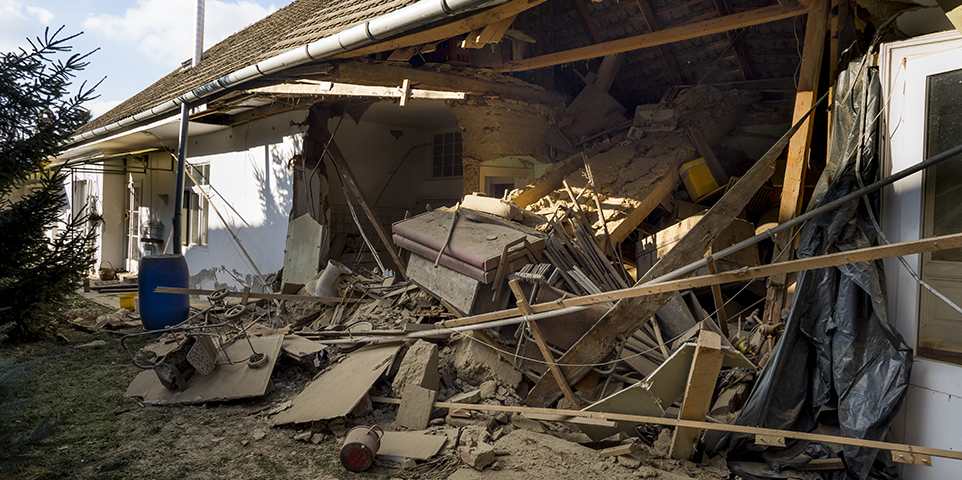MEMBERSHIP
AMPLIFY
EN ESPAÑOL
Connect With Us
- Popular search terms
- Automobile
- Home + Renters
- Claims
- Fraud
- Hurricane
- Popular Topics
- Automobile
- Home + Renters
- The Basics
- Disaster + Preparation
- Life Insurance

Earthquakes can cause much harm to home structures. They can damage housing foundations and collapse walls; even relatively mild tremors can destroy furnishings and belongings.
Homeowners and renters insurance does not cover earthquake damage. A standard policy will, however, generally cover losses from fire following a quake and, if such a fire makes your home unlivable, cover the additional living expenses incurred while you live elsewhere during repairs.
Cars and other vehicles are covered for earthquake damage under the optional comprehensive part of an auto insurance policy.
Earthquake coverage is available in the form of a separate policy or an endorsement from most private insurers and, in California, from the California Earthquake Authority (CEA).
Determining if you need earthquake insurance is more important than ever—even if you do not live near a fault line. Not only can earthquakes have an impact far beyond major fault lines, some areas of the country—notably, parts of Oklahoma—are experiencing more seismic activity as a result of oil drilling efforts. If you are thinking about buying a home in an earthquake prone location, it's advisable to look into the cost of insurance coverage to understand the home's true cost.
Some questions to determine whether you need earthquake insurance:
Rates for earthquake insurance can vary significantly, from fairly inexpensive in lower risk areas to a relatively high cost in places that are more prone to earthquakes. Deductibles for earthquake insurance plans are higher than those in standard homeowners or renters insurance, usually from 5 to 15 percent of the policy limit.
Because in California the risk for earthquake damage is significant, the not-for-profit California Earthquake Authority (CEA) offers coverage for the structure of the house, building code upgrades and emergency repairs. It also provides separate coverage options for belongings (with a separate, lower deductible) and for additional living expenses (with no deductible).
To get more insights and to find out whether earthquake insurance is available in your area, contact your insurance professional or your state insurance department.
California Earthquake Authority (CEA)
FEMA: Your Earthquake Risk
Next steps: Is your home covered in case of flooding?